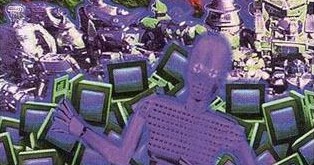[Close file]
Running a Tournament:
What You Need to Know
by Jennifer Clarke Wilkes
So you're pumped about Netrunner and you want to put on a tournament. What now?
Well, the most obvious first step is to secure a location. If possible, try to work with your local game retailer. You'll need enough
space to seat six to eight pairs of players. If the store has gaming space, so much the better. But if not, you may still be able to have
the retailer sponsor your event in exchange for publicity. Libraries, community centers, schools, and even shopping malls are likely
places to find space without having to pay a fee.
You'll also need to arrange a date and time. Try for two to three weeks' notice so you can advertise and secure prize materials. A typical
Swiss-draw tournament of four rounds will probably take five to six hours, depending on the deck format and the experience of your
players, so make sure you start fairly early.
Advertise your event! Take advantage of community newspapers and bulletin boards. Post something to a newsgroup. If you or the
retailer have a Web page, it makes an excellent advertisement node.
I'd recommend sealed-deck tournaments to start with. A constructed-deck environment can be very intimidating. Besides, Netrunner
plays so well out of the box that it is perfect for sealed-deck play. It's also more approachable by people you have just taught. As
well, it helps the retailer, since people will probably have to buy cards.
People play in tournaments for fun, but it adds a lot to have a shot at winning something. Cards make fine prizes. Maybe your retailer
will be able to provide some materials. As well, Wizards of the Coast supports tournaments: to request prize support, you can
email me or speak to your local TRC chair. The prize packages are sent by parcel post,
so allow two weeks or so for delivery in the continental US, and somewhat longer for international destinations.
A good way to prepare the gaming community for your tournament is to hold demos in the preceeding weeks. (See
Doug Caspian-Kaufman's article.) You can get demo support materials like posters, flyers, playmats, and cards
from me as well.
On the day of the tournament, try to arrive about an hour early to set things up. You can also use this time to do a demo or two. If
possible, bring a copy of the card rulings and rules errata with you. Tricky rules questions don't tend to come up often, but it's good to
be prepared.
I don't recommend playing in a tournament you run, but if there is an independent person available to resolve rules questions (such as
the retailer), this can work. If you have an odd number of players, you can play whoever has a bye that round. Or strip out a starter and
challenge all comers.
Above all, have fun!
[Close file]
|

